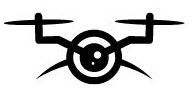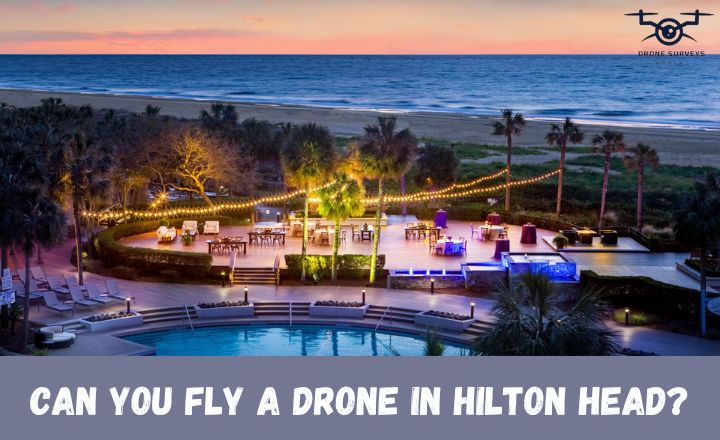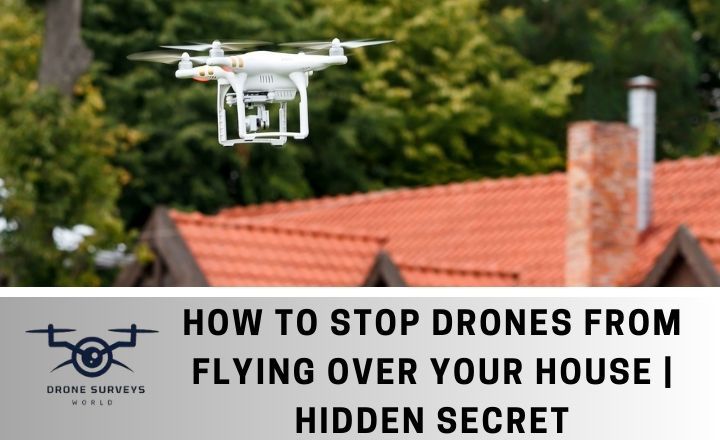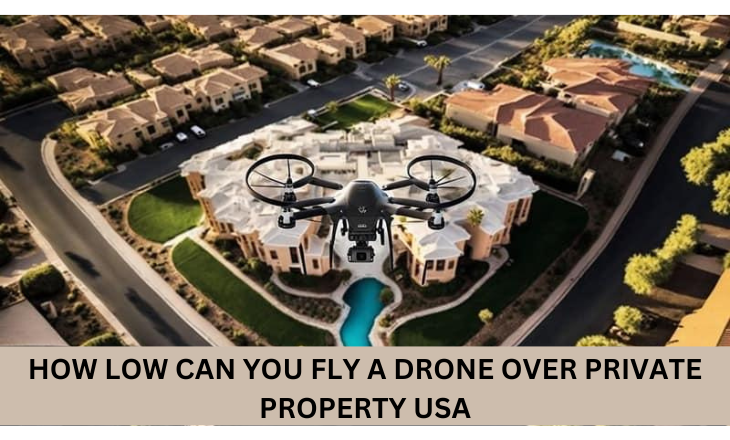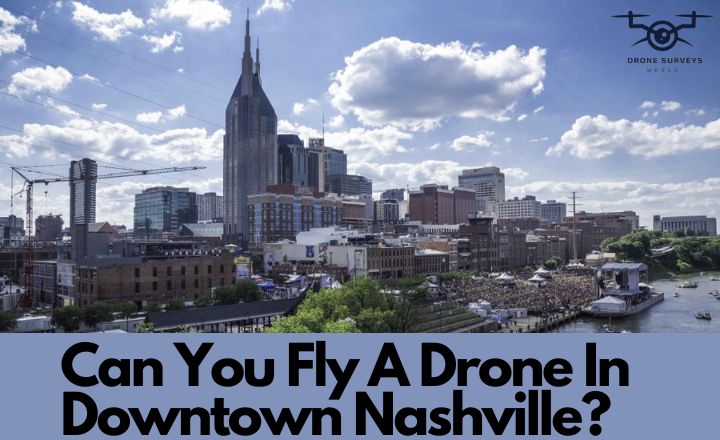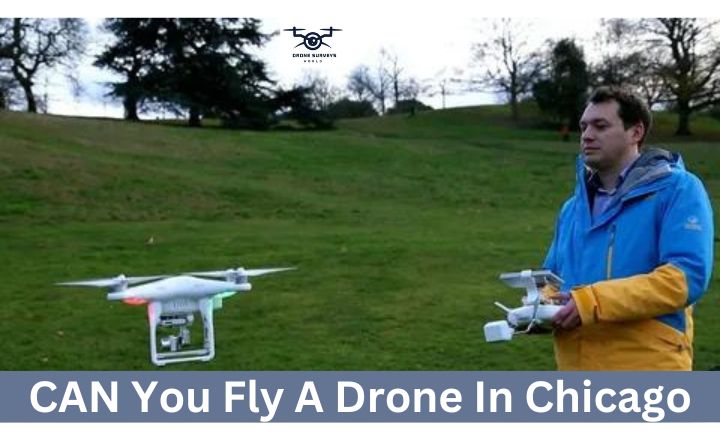Hilton Head Island in South Carolina is beautiful for beach lovers, golf fans, and nature enthusiasts. But the question arises: Can you fly a drone in Hilton Head? Yes, South Carolina welcomes UAV pilots. But understanding the rules for flying drones in Hilton Head can take time and effort. Let’s explore the drone regulations in this lovely destination and learn how to fly legally while enjoying the island’s beauty.
Can You Fly A Drone In Hilton Head?
As a drone enthusiast, venturing out to fly your UAV in Hilton Head, South Carolina, can be an exhilarating experience. With proper research and adherence to the rules, drone photography in Hilton Head can still provide breathtaking shots of its iconic beaches and lush greenery. While federal and state Hilton head drone laws must be followed diligently, the good news is that there are few local restrictions to hinder your flights in this area.
Federal Drone Laws In Hilton Head
Federal drone laws in Hilton Head have become increasingly important with the rising popularity of drones among hobbyists and commercial users.
Passing The TRUST
The recent introduction of the TRUST (The Recreational UAS Safety Test) ensures that all recreational drone operators in Hilton Head abide by safety regulations and understand airspace rules. This initiative aims to enhance safety measures and reduce potential risks associated with drone operations in populated areas.
Register Your Drones
Federal drone laws in Hilton Head require all drone operators to register their drones with the Federal Aviation Administration (FAA) before flying. Failure to adhere to this regulation could result in fines or penalties.
Refrain From Flying At Night Or During Bad Weather
These restrictions are in place for the safety of everyone involved, as poor visibility can increase the risk of accidents and potential danger. By adhering to these regulations, drone pilots can help ensure a safe and enjoyable experience while exploring the skies above Hilton Head.
Keep The Drone Within Your Visual Line Of Sight
Federal drone laws in Hilton Head strictly require operators to keep their drones within their visual line of sight. This regulation ensures better control and reduces the risk of accidents or unauthorized flights in restricted areas. It also helps maintain privacy and safety for residents and tourists on the island.
Do Not Fly Your Drone Over Crowds
Avoid flying drones over crowds, as this can pose a significant risk to public safety. By adhering to this rule, drone pilots can help prevent accidents and maintain a pleasant experience for those enjoying outdoor activities on the island.
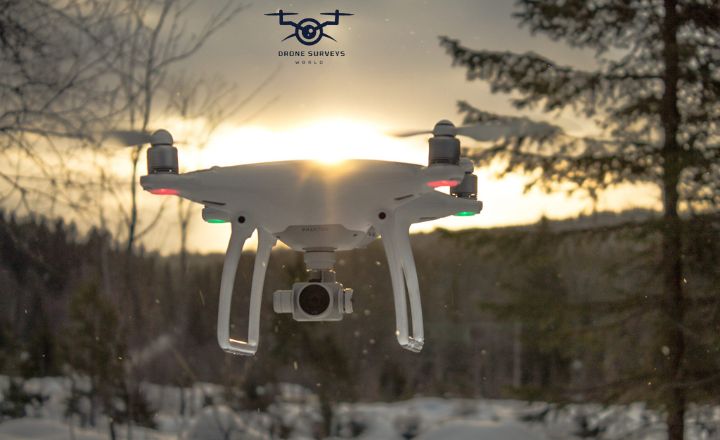
Fly At Or Below 400 Feet
Fly your drone at or below 400 feet above ground level. By staying within this altitude limit, drone operators can ensure safe airspace and minimize the risk of interfering with human-crewed aircraft.
Do Not Interfere With Other Aircraft
Drone operators must not interfere with other aircraft and must adhere to specific altitude restrictions. These laws are crucial to prevent accidents and ensure the smooth operation of human-crewed and uncrewed aircraft.
Do Not Use Drones For Hunting
In Hilton Head, drone laws strictly prohibit using drones for hunting or fishing. This regulation is in place to protect wildlife and ensure fair and ethical practices in outdoor recreational activities. By restricting the use of drones for hunting or fishing, authorities can maintain balance in the ecosystem and prevent any negative impact on local flora and fauna.
State Drone Laws In Hilton Head
Flying a drone in Hilton Head, South Carolina, is easy because the state has few rules for drone pilots. The only law in South Carolina is Bill 176, which says:
“You can’t fly your drone within 500 feet horizontally or 250 feet vertically of a Department of Corrections building without permission. Breaking this law could result in a misdemeanor charge, with penalties of up to 30 days in jail, a $500 fine, or both.”
Local Drone Laws In Hilton Head
A few years back, the Hilton Head Island Town Council failed to ban the use of drones on public beaches. Despite this, the town does have a list of prohibited activities on beaches as outlined in the ordinance [3]:
“Using a loudspeaker or any sound amplification device to promote political or commercial activities on the beach, or causing unnecessary disturbance to others, is prohibited by law.”
Consequences Of Flying Your Drone In A National Wildlife Refugee
Flying your drone in a protected area like this can result in more than just a slap on the wrist. It can lead to one year in prison and a hefty $100,000 fine. These penalties aren’t just empty threats; they are enforced to protect the fragile ecosystems and wildlife that call these refugees home.
The second offense of flying a drone in a National Wildlife Refuge can result in up to two years in prison and a hefty fine of $250,000.
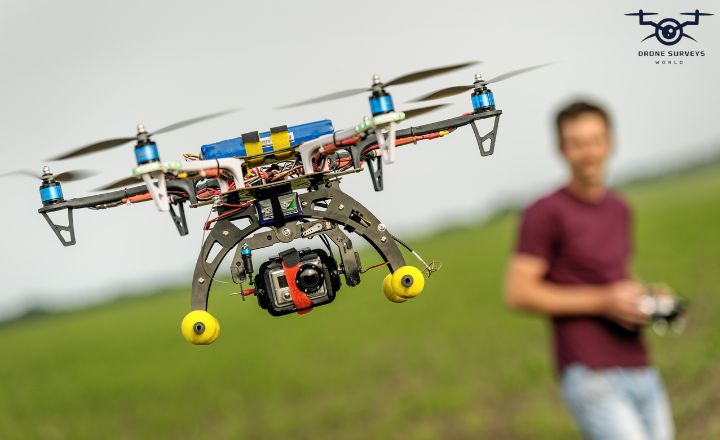
Wrapping Up
Can you fly a drone in Hilton Head? Flying a drone in Hilton Head is fun and gives great views of the island’s landscapes. There are rules to keep everyone safe and protect privacy, but you can still get amazing footage with the right knowledge and follow the Hilton head drone rules. Ensure you know the local laws before flying to avoid legal problems. Flying a drone in Hilton Head can be a great experience that lets you see things from a different angle and be creative.
Frequently Asked Questions
Are there any Restrictions on Where I can fly my Drone in Hilton Head?
Yes, there are no-fly zones such as near airports, restricted military areas, and crowded public spaces. If you’re unsure about being in a no-fly zone or the restrictions for the area, use the B4UFLY App.
Are there any Specific Methods to Detect Drones in Low Light Conditions?
Using night vision goggles or thermal imaging cameras can be effective in detecting drones at night.
Can I fly a Drone near Hilton Head Airport?
No, flying drones within a 5-mile radius of the airport is prohibited. So, avoid flying near them.
Can I fly a Drone in Pinckney Island National Wildlife Refuge?
No, drones are not permitted in the refuge according to FAA guidelines.
